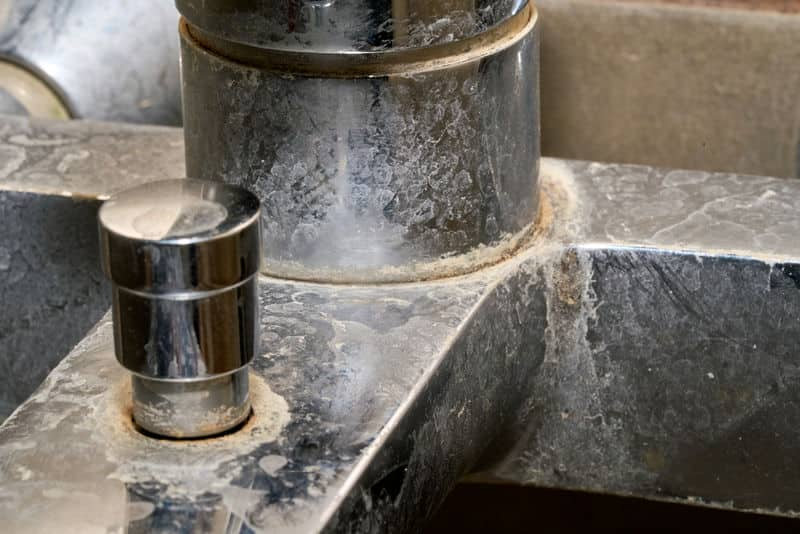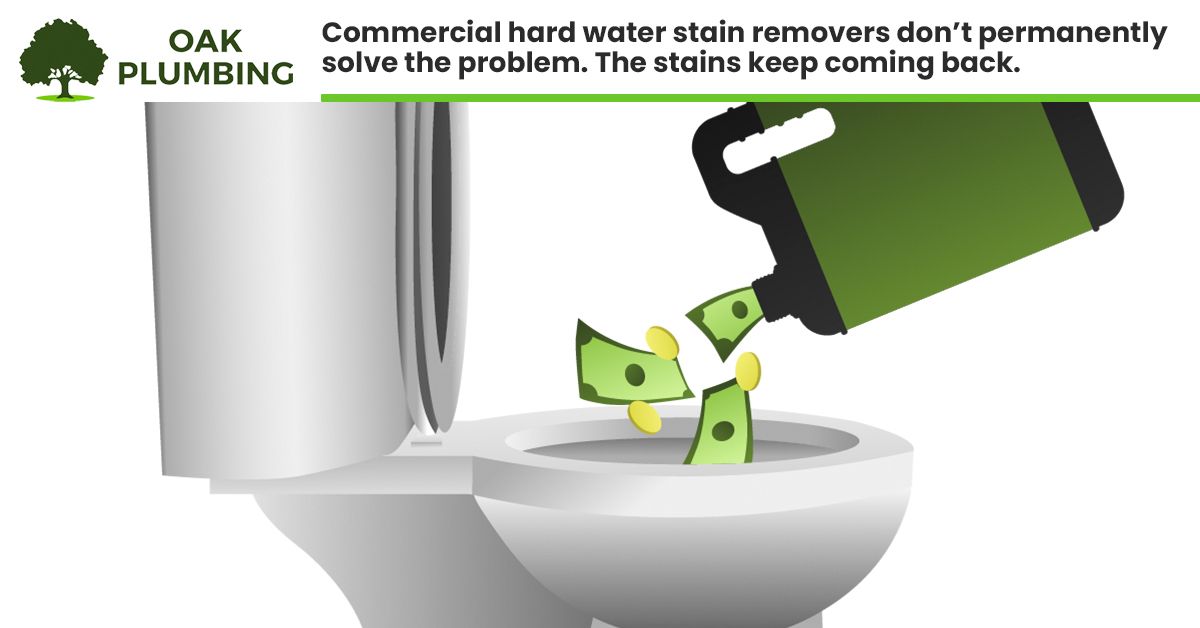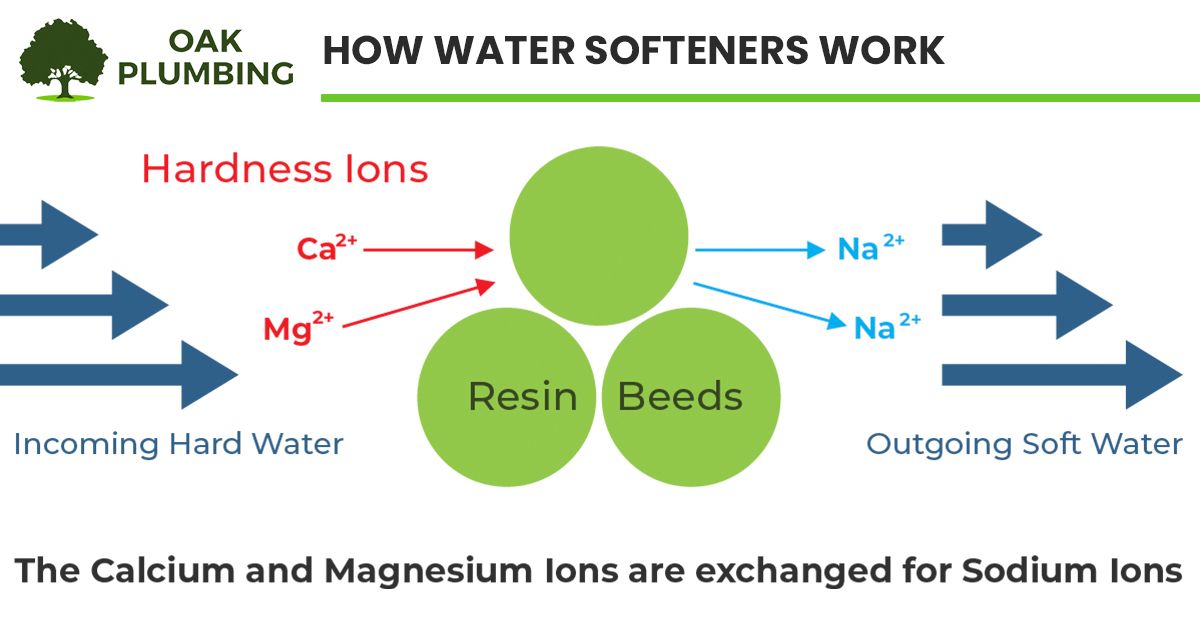Searching for information about the signs of hard water? If so, don't hit that back button because you've landed on the right page. In this article, we're going to discuss what hard water is, how it differs from soft water, the health benefits of hard water, signs you might have hard water, and more.
What Is Hard Water?
Hard water is water that contains larger amounts of minerals, primarily calcium and magnesium. As the rainwater flows through the soil before getting to the aquifer, it picks up minerals along the way, making it hard.
Hard water is not contaminated water. It's just water that has a lot of minerals in it. It's perfectly OK to drink. In fact, it even tastes better, and the minerals are good for you. However, hard water can make your skin itch and cause eczema to flare up. Hard water can also cause problems for appliances. We'll talk more about this in just a bit.
There's a lot of hard water in the US, both well water and city water. According to the US Geological Survey, hard water is defined as water that contains 121+ milligrams of calcium carbonate per liter. Here's the breakdown:
- Soft water - 0 to 60 mg/L
- Moderately hard water - 61 to 120 mg/L
- Hard water - 121 to 180 mg/L
- Very hard water - more than 180 mg/L
What Is Soft Water?
Soft water is water that contains few or no minerals. Rainwater that hasn't come into contact with the ground is naturally soft water. However, soft water can also be created using a water softening system. Soft water created by a water softening system tends to taste a bit salty because sodium ions are often used in the softening process. Soft water is better to clean with (soap lathers easier) and easier on appliances, skin, and hair.
Because water that has been softened via a water softening system contains more sodium, it might not be the best drinking water for people with certain health problems. Also, softened water doesn't have calcium or magnesium, which are essential minerals. However, these minerals are available via multivitamins or supplements.

What Are the Signs Of Hard Water?
Signs of hard water include:
- Water spots on dishes, shower doors, faucets, etc.
- Build up of minerals around faucets
- Pure soaps (Castile, etc.) don't lather very well. (Other soaps have ingredients in them that encourage a good lather)
- Clogged shower heads from mineral deposits
- The water tastes good - This is from the larger amount of minerals. Hard water is not the same as contaminated water. Water that smells funny or tastes bad might be contaminated. If your water smells, looks, or tastes funny, contact a professional and have it checked out. For more information, see Why Is My Water Brown All of a Sudden?
- Your water pressure isn't what it should be - Mineral deposits in plumbing pipes might cause this. Like plaque in a human artery, minerals in the water cause reduced flow.
- You need to use a lot of detergent to clean your clothes - Your clothing might also wear out quickly.
- Your skin itches or doesn't feel clean - You might also be prone to eczema flare-ups caused by the water's rich mineral content.
- Your appliances wear out quickly - Mineral deposits can build up in supply and drain lines.
If you see any of the above, buy a hard water test and check your water.
Signs of soft water include:
- Soaps lather well
- Clothing is easy to clean without using a lot of detergent
- Good water pressure
- No skin problems
- Water tastes a bit salty. (This is only if the water has been artificially softened.)

How to Get Rid of Hard Water Stains
You can get rid of hard water stains by using a commercial cleaner designed to get rid of hard water stains. (Forget all the various home remedies. They don't work.) However, that's not a permanent solution because you still have the hard water coming through your pipes. The only way to permanently get rid of hard water stains is by installing a whole house water softening system. We'll talk more about this in the next section.
For more information, see Preventing Hard Water Stains in Toilet - A Solution That Works.
A Water Softening System Removes Hard Water For Good
The only way to permanently get rid of hard water is to install a whole house water softening system. A whole house water softening system ensures that the water coming out of all the taps in your home will be soft.
How do water softening systems work?
Water softening systems work by removing the calcium and magnesium from the water and replacing them with sodium or potassium. The hard water with the calcium and magnesium flows through a resin coated with positively charged sodium or potassium ions. A process called "ion exchange" happens, and the hard water minerals are replaced with sodium or potassium, making the water soft.

Water softening systems do require maintenance. You'll need to replenish the sodium (or potassium) pellets, so the resin stays electrically charged.
Since water softened using sodium has a higher salt content, people with certain health issues will probably want to avoid drinking it. The same goes for water softening systems using potassium. Check with your doctor for more information.
Of course, everyone can use the softened water for washing their hands, clothing, showering, etc.
Hard Water Is Not the Same as Contaminated Water
Remember, hard water is simply water full of certain minerals, mainly calcium and magnesium. Sure, hard water can get contaminated, but it doesn't mean it's contaminated just because it’s hard and leaves behind stains. Hard water is perfectly OK to drink, and even though it might irritate sensitive, eczema-prone skin, it's also perfectly OK to use for washing and bathing.
If you're not happy with the hard water coming into your home, contact us today for more information about whole house water softening systems.

